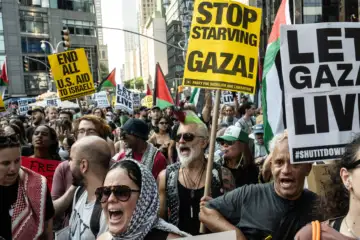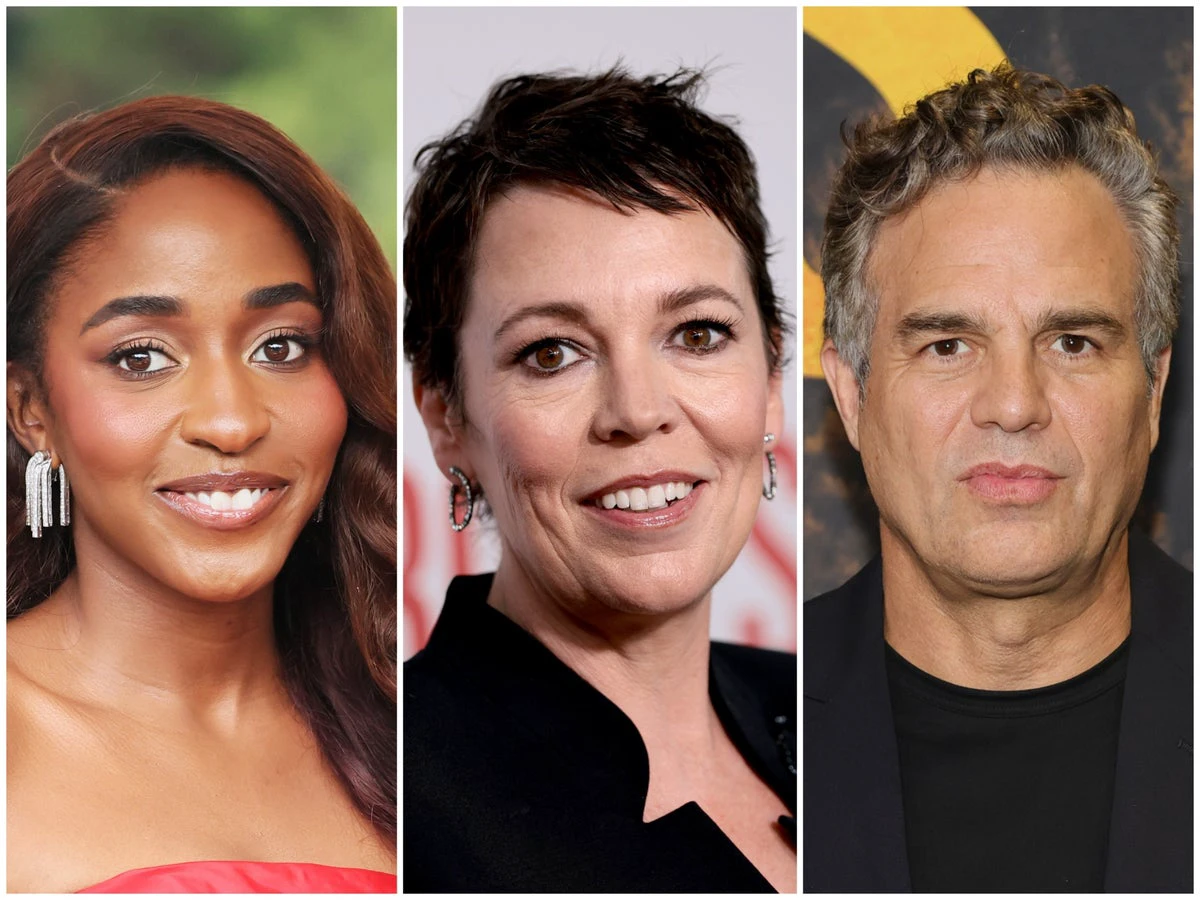I could hardly believe my eyes when I saw the news that some of Hollywood’s biggest stars .It broke on Monday, and continued to snowball in the days that followed: 4,000 actors, directors, and other significant film-industry professionals had pledged to refrain from working with Israeli film institutions, in protest at the ongoing genocide of Palestinians.
“We pledge not to screen films, appear at or otherwise work with Israeli film institutions – including festivals, cinemas, broadcasters and production companies – that are implicated in genocide and apartheid against the Palestinian people,” their strongly worded statement read.
Signatories include some surprisingly big hitters: actors Olivia Colman, Emma Stone, Mark Ruffalo, Tilda Swinton, Javier Bardem, Ayo Edebiri, Susan Sarandon, Riz Ahmed, Elliot Page, Andrew Garfield, Brian Cox, and Cynthia Nixon. Filmmakers among the signatories include Ava DuVernay, Yorgos Lanthimos, Boots Riley and Joshua Oppenheimer.
The significance of this move shouldn’t be understated. In an industry focused on mass-market appeal, it’s rare that Hollywood stars voice their opinions on serious international issues such as this, and even rarer that they take a material stand against them. (The boycott instantly drew a strong reaction: it has been heavily criticised by Nadav Ben Simon, chair of the Israeli screenwriters’ guild, who said he found it “deeply troubling”.) It’s also a surprise to see so much action from US Hollywood stars, who come from a context in which support for Israel is historically stronger. It’s a clear sign that the tide is turning – after almost two years of consistent, escalating Israeli bombardment of Gaza, and with US citizens’ opinion of the Israeli government at an all-time low.
While the boycott might have surprised me, there’s a historical precedent here dating back decades. In 1963, 48 British and American playwrights, including Samuel Beckett, Harold Pinter and JB Priestley, signed a declaration that they wouldn’t allow their plays to be performed in front of segregated audiences in South Africa. The impact on South African theatre was so serious that the nation’s theatre-makers asked the then minister of home affairs for a meeting about the threat to the country’s theatrical culture. A year after the playwrights’ boycott, Marlon Brando asked film directors, actors and producers in London to forbid the screening of their films to the same segregated audiences.
In the Eighties, Artists United Against Apartheid, led by musician and actor Steven Van Zandt, boycotted South Africa’s luxury Sun City resort. Singers and bands including Dolly Parton, Shirley Bassey, Elton John and, most famously, Queen, faced huge backlash when they broke the boycott and performed there for large fees.
By the latter half of that decade, the film industry’s cultural boycotts were also getting more organised. In 1987, at a time of mounting protest against the South African regime, Martin Scorsese and Jonathan Demme founded Filmmakers United Against Apartheid. Scorsese led the group of more than 100 of his film-industry colleagues who demanded that their films were not shown in the country. They also pressured Ronald Reagan, as a former actor, to support a cultural boycott, writing to the president: “It has become clear that boycott and divestment … are the last possible peaceful methods available to achieve the ultimate goal of social change in South Africa.” Reagan, who actively opposed boycotts and sanctions, never caved, showing that boycotts are not a silver bullet but rather a way of putting pressure on decision-makers.
 Today, the cultural boycott of the South African apartheid state is considered to have played a significant role in the broader anti-apartheid movement. This isn’t only for its economic impact on the nation, but also the effect it had on the country’s “soft power”. Culture is a hugely significant means by which nations build their reputation on the international stage. We all consume it, and our opinions are shaped by it. You only need to look at the razzle dazzle of Hollywood, and its role in the global romanticisation and glorification of the US, to see that.
Today, the cultural boycott of the South African apartheid state is considered to have played a significant role in the broader anti-apartheid movement. This isn’t only for its economic impact on the nation, but also the effect it had on the country’s “soft power”. Culture is a hugely significant means by which nations build their reputation on the international stage. We all consume it, and our opinions are shaped by it. You only need to look at the razzle dazzle of Hollywood, and its role in the global romanticisation and glorification of the US, to see that.
Action of this kind will likely continue to make headlines for as long as Israel’s assault on Gaza continues. Just last week, Palestinians amplified their call for a boycott of Radiohead on the basis of lead guitarist Jonny Greenwood’s performances in Tel Aviv in recent years, for which he has crossed pro-Palestine picket lines. The impact on ticket sales, and the band’s reputation, is yet to be seen.
Cultural boycotts are, of course, always vulnerable to being broken or circumvented, and they can also fail. They are most likely to do so when they are not targeted and strategic, taking aim at too wide a range of individuals and organisations, or failing to establish specific demands. But when implemented precisely and intentionally, they work on multiple fronts. When artists spoke out against South Africa’s apartheid regime, they made the state a global pariah, which meant it could no longer participate in the cultural sphere.
Reportage surrounding boycotts often doggedly focuses on the big names involved, which is a testament to star power and its ability to garner public attention around an issue. But this can run the risk of obscuring those who are putting in work on the ground, and those most affected.
In the case of the most recent boycott, it feels important to stress that it actually came in response to calls from Palestinians, who last year asked that film-industry workers “do everything humanly possible to stop and end complicity with this unspeakable horror”. The pledge was also ultimately organised by Film Workers for Palestine, who have been active since January 2024 and earlier this year demanded that indie streamer Mubi cut ties with investor Sequoia Capital, a venture capital firm linked to the Israeli occupation.
It’s also clear that Film Workers for Palestine borrows its strategy from the broader Boycott, Divestment and Sanctions movement, a Palestinian-led campaign that calls for cultural boycotts as one of its core strategies, citing the anti-apartheid movement as inspiration.
And they are right to be inspired by it. Culture is always political, and boycotts remind us of that. As viewers, we should equally consider to whom we lend our money, our clicks and our views. While we as individuals don’t have the same leverage as a household name or a wealthy executive, we can participate in cultural boycotts as a collective. As Stone, Colman and Palestinians urge, we must “do everything humanly possible”.
